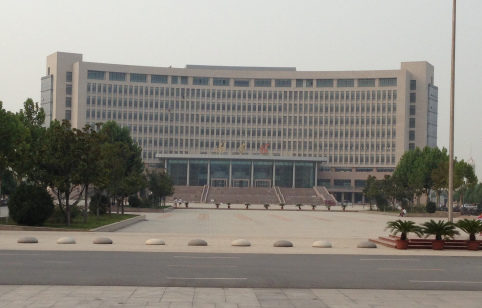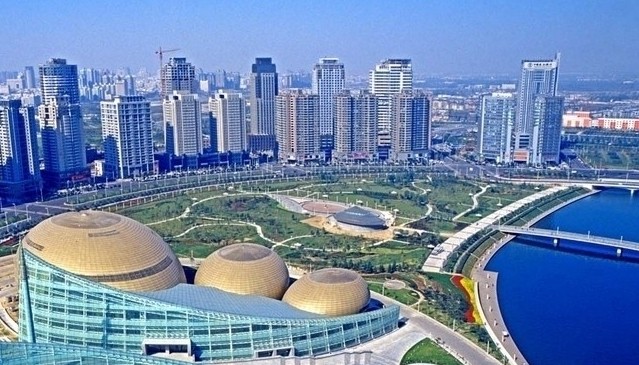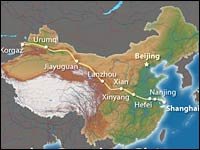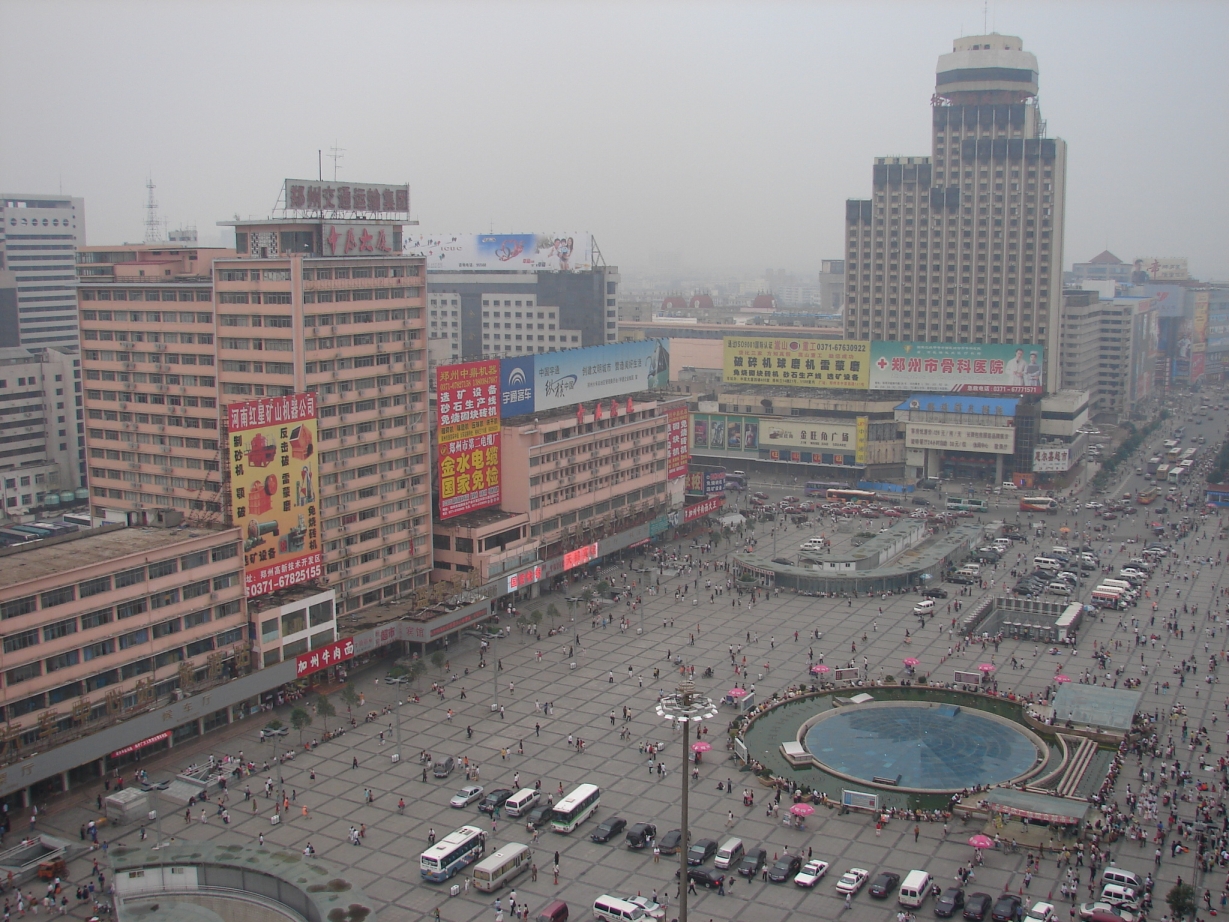I just returned from my first visit to Henan University of Technology, the school where I’ll be teaching for the next 10 months. It’s basically in the middle of nowhere.
As Chinese universities have grown, they’ve needed room to expand. And that’s nearly impossible to do on most older campuses, which are usually located in the middle of crowded cities. So the answer has been to build entirely new campuses far from the central city with more modern facilities and plenty of space to grow. That’s what happened with Henan University of Technology and Zhengzhou University, a larger and more prestigious school that also built a new campus right down the road from HUT on the northwest edge of the city. What used to be farmland is now home to more than 75,000 students at the two universities, which both feature massive, ugly concrete buildings that apparently were designed by blind men.
Along with two of my English teacher colleagues, Edith and Jennifer, I toured the Henan University campus and got a quick look at the office we’ll be sharing, which currently consists of a bunch of brand new computers and printers that have yet to be hooked up. The room was strewn with discarded boxes and all the desk drawers were locked. With temperatures in the low 90s and no air conditioning, the room felt like a sauna. Hopefully, by the time we start working next Monday, the place will be cleaned up and habitable.
One place I may not find habitable is the bathroom, which has squat toilets. Though Western style toilets are becoming more common in China, especially in hotels and other tourist sites, most Chinese people still use what are sometimes referred to as “squatty potties.” They’re pretty much what they sound like — toilets that are built into the ground, where you squat rather than sit to relieve yourself. The Chinese believe it’s a healthier way to go, and some scientific studies back them up with evidence that it reduces bowel strain that can lead to hemorrhoids and colon cancer. Still, it’s quite an adjustment for a Westerner who’s used to sitting on the throne. Plus, Chinese bathrooms rarely come equipped with toilet paper, so you have to bring your own. And one more thing: Chinese plumbing isn’t equipped to handle flushed paper. That means the used paper is thrown in a wastebasket, resulting in a bathroom odor that will stay with you long after you leave.
***
I still don’t know what kind of toilet my apartment will have. I do know that my new home is located just across a major highway from the school. Crossing should be an adventure, especially the crazy way that the Chinese drive. There may be rules of the road here, but nobody follows them. Cars race through red lights, tiny scooters cut in front of big buses, pedestrians walk in the middle of highways, and bicyclists go wherever they want, regardless of who or what is blocking their path. I don’t know how many people are killed every day in traffic accidents, but it must be a substantial number.
I hope I don’t sound like a whiny American spoiled by all the creature comforts. I came to China to experience a different way of life, and that’s what I’m getting. Edith, Jennifer and I decided that whenever we encounter any hardships or cultural shocks, we’re going to smile and say: “Welcome to our Chinese adventure.”





Who does HUT play in the season opener?–raiss
I think it’s their traditional rival, Southeast China State.
Hey RIck — enjoying your posts. Maybe the Muse ought to pick you up for syndication.
As for squatting, it might be good for the bowels but how is it on your knees? I can imagine mine locking up. Also seems like it might be unconducive to bathroom reading.
.